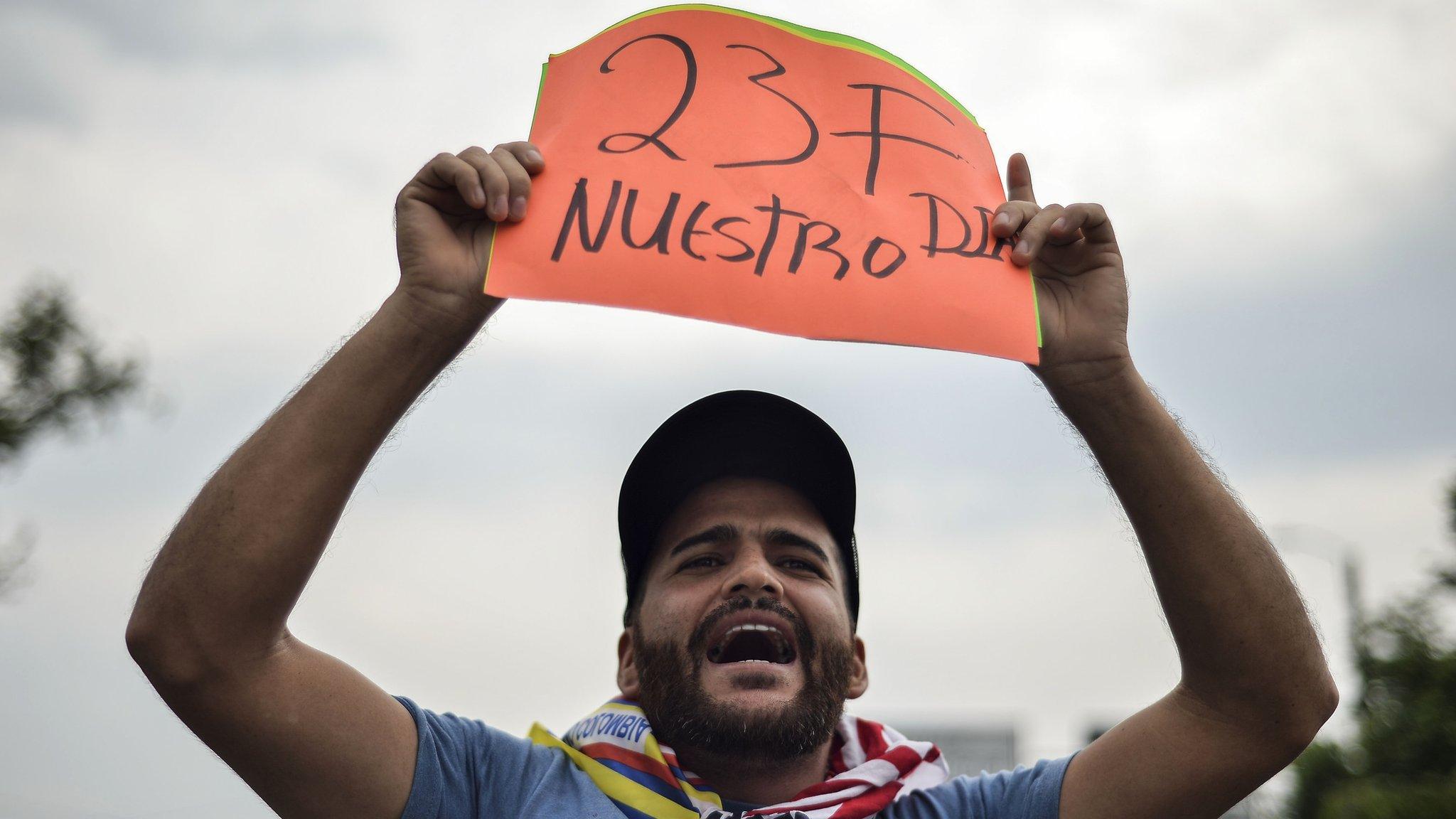Venezuela soldiers abandon posts at Colombia border
- Published
The moment Venezuelan troops crashed through border into Colombia
Soldiers from the Venezuelan national guard have left their posts ahead of an opposition-led effort to bring aid into the country, Colombia's migration agency said.
In a separate development, Venezuelan troops have fired tear gas at people looking to cross into Colombia to work.
Tensions have been rising over a row about the delivery of humanitarian aid.
President Nicolás Maduro said the border with Colombia is partly closed to stop aid being delivered.
But self-declared interim president Juan Guaidó has vowed that hundreds of thousands of volunteers will help bring in the aid deliveries, which include food and medicine, on Saturday.
The first delivery of aid has already entered Venezuela through Brazil, Mr Guaidó tweeted.
The delivery of aid to the stricken country has proven to be a key area of contention between the two men who see themselves as Venezuela's leader.
What's the latest?
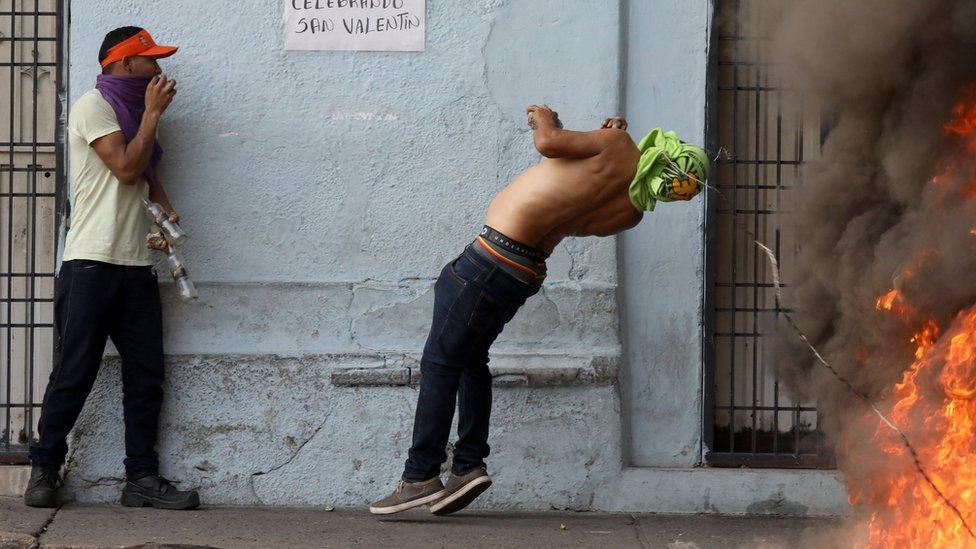
A demonstrator runs into barbed wire strung across a street in Ureña
Pictures at various crossing points show security forces firing tear gas at volunteers and protesters burning outposts and throwing rocks at soldiers and riot police.
On the Venezuela-Colombia border, at least thirteen members of the security forces defected on Saturday, Colombia's migration authority said.
A video posted on social media appears to show four soldiers publicly denouncing Mr Maduro and announcing their support for Guaidó., external
"We are fathers and sons, we have had enough of so much uncertainty and injustice," they say.
Local media report people jumping the barricades to cross the border, while opposition MPs have posted defiant messages on social media denouncing the use of force., external
The BBC's Orla Guerin, at the Simon Bolívar International Bridge, said Venezuelans were begging soldiers to be allowed to cross.
Allow X content?
This article contains content provided by X. We ask for your permission before anything is loaded, as they may be using cookies and other technologies. You may want to read X’s cookie policy, external and privacy policy, external before accepting. To view this content choose ‘accept and continue’.

Mr Guaidó visited the Tienditas bridge on the Colombian side of the border, where he was accompanied by the country's president, Iván Duque.
"Welcome to the right side of history", he told soldiers who had abandoned their posts, adding that soldiers who joined them would be guaranteed "amnesty."
Venezuela-Colombia border turns violent
"We want to work!" people chanted as they faced riot police at the Ureña border bridge in south-west Venezuela.
Activists there were joined by 300 members of the "Women in White" opposition group who marched in defiance of Mr Maduro's attempts to close the border.
Meanwhile, a top ally of President Maduro has suggested the government would allow Venezuelans to accept aid "at their own risk", but that no foreign soldiers would "set foot" inside Venezuela. , external
The president himself tweeted that "there will not be a war", posting pictures of cheering crowds in Caracas.
"Take your hands off Venezuela, Donald Trump", he told crowds, accusing the US president of using aid as a means to invading the country.
He accused Mr Guaidó of being a "puppet", and "American pawn", a "clown" and an "imperialist beggar."
A military outpost near the Venezuela-Brazil border has been taken over by a militia loyal to President Maduro, according to VPI TV, external.
Earlier on Saturday, two people were killed by Venezuelan forces near the border with Brazil.

"Why are you serving a dictator?"
Guillermo Olmo, BBC Mundo, Ureña, Venezuela
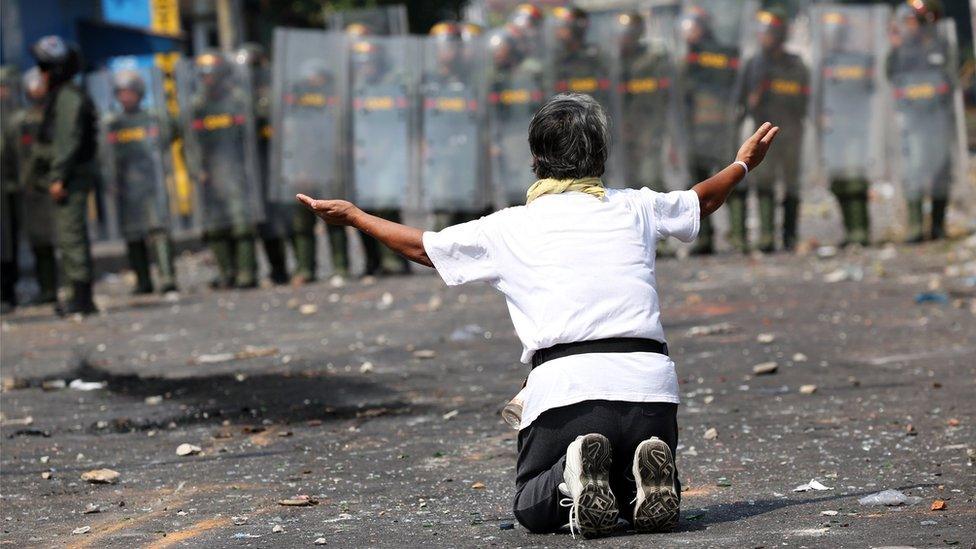
A demonstrator kneels before security forces in Ureña
It's been a difficult day here on the Venezuelan side.
We found locals getting angry because they found the border was closed - these people normally make a living across the border. Then it turned ugly in Ureña.
We witnessed protesters lunging to break one of the barriers but the National Guard started firing tear gas and pellets.
People were shouting at the National Guard asking them why, in their words, they were serving a dictator and not serving their own people.
We had to run away to avoid being hurt but there is still a lot of tension in the air, with a heavy military presence everywhere.

How did we get to this point?
Humanitarian aid has become the latest flashpoint in the ongoing standoff between Mr Maduro and Mr Guaidó.
Mr Guaidó, who is the leader of the country's opposition-dominated National Assembly, last month declared himself the country's interim leader.
He has since won the backing of dozens of nations, including the US. He has called the rule of President Nicolás Maduro constitutionally illegitimate, claiming that Mr Maduro's re-election in 2018 was marred by voting irregularities.
Venezuela is in the grip of a political and economic crisis. The country's inflation rate has seen prices soar, leaving many Venezuelans struggling to afford basic items such as food, toiletries and medicine.
Mr Guaidó insists that citizens badly need help, while Mr Maduro says allowing aid to enter is part of a ploy by the US to invade the country.
About 2.7 million people have fled the country since 2015.
Battle of the concerts held on either side of the Venezuela-Colombia border
- Published23 February 2019

- Published4 February 2019
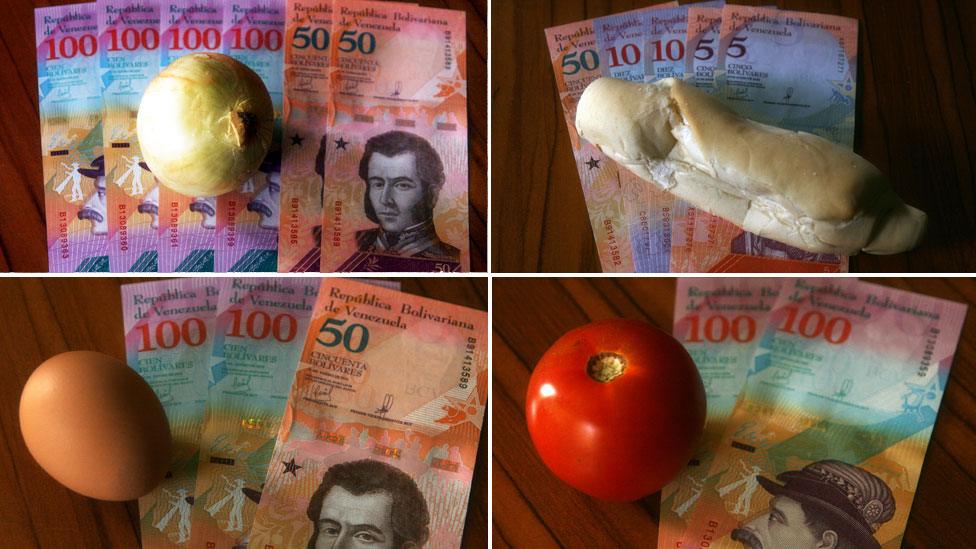
- Published4 February 2019
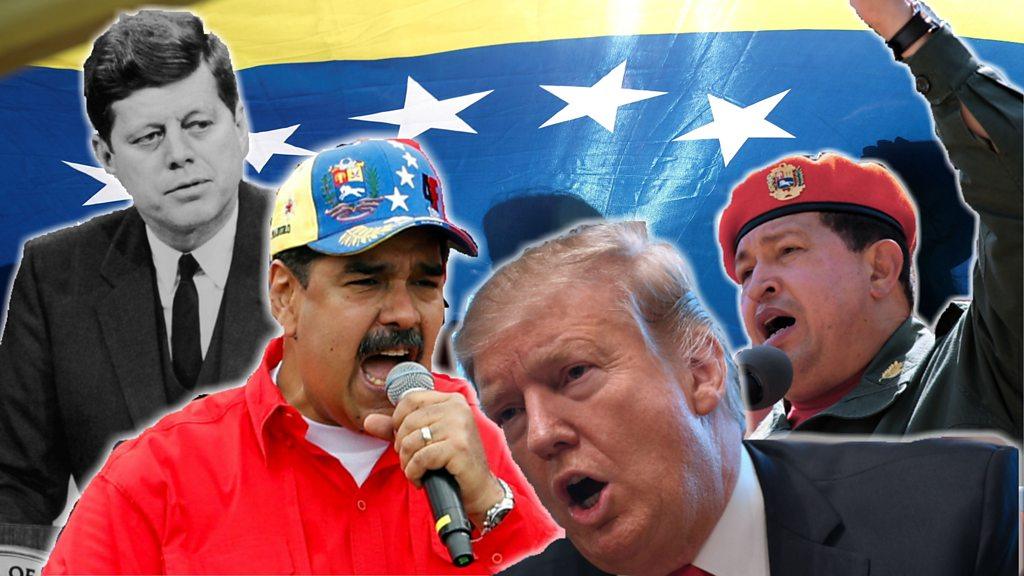
- Published22 February 2019
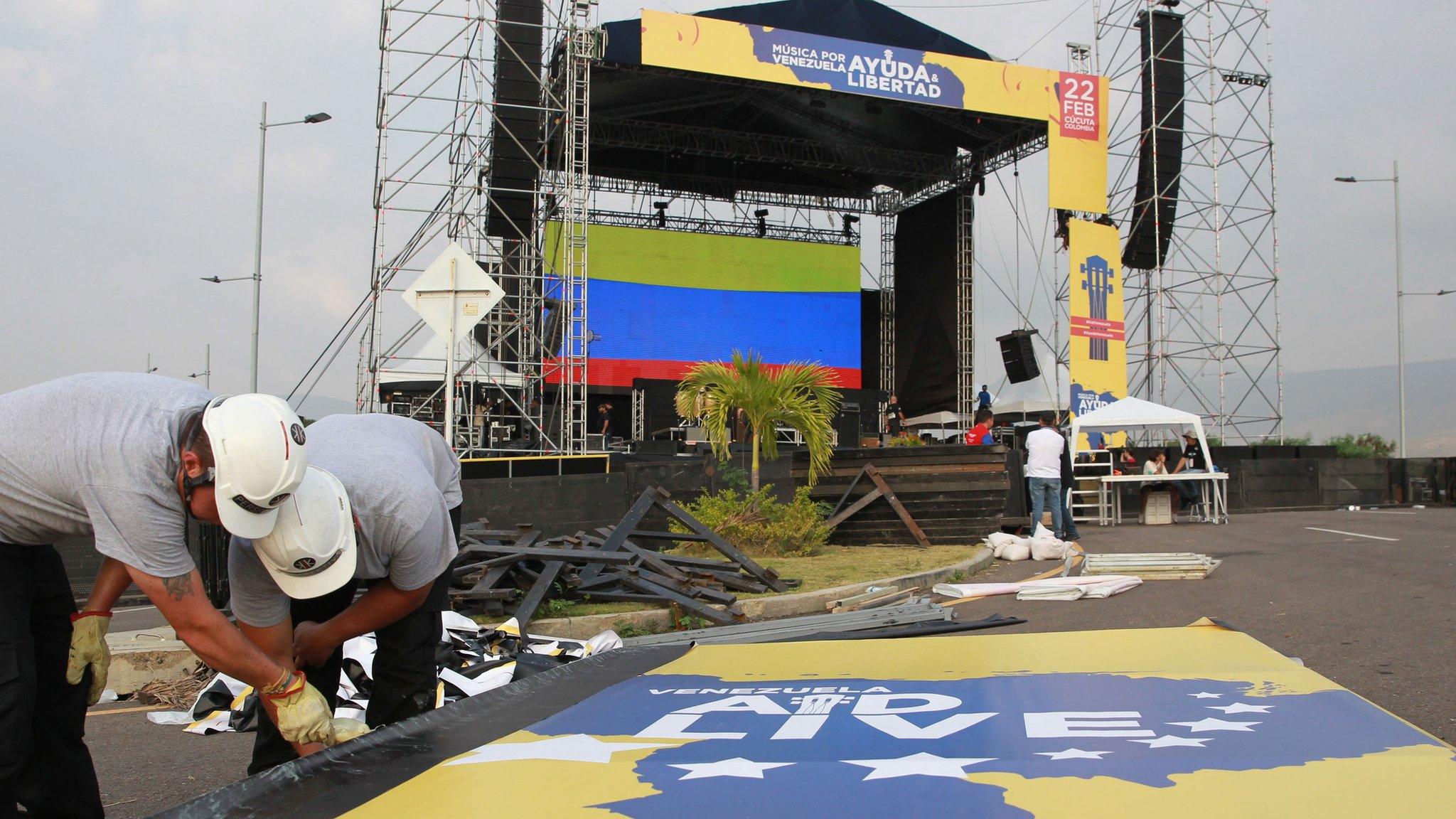
- Published22 February 2019
